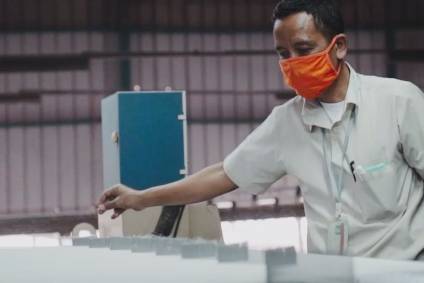
H&M has revealed its partnership with the global programme Keeping Workers in the Loop (KWIL) as it looks to secure fair jobs at a time when the industry is increasingly concerned with circularity of fashion.
H&M notes that when shifting to becoming a circular business where it produces less and uses materials longer, jobs throughout the value chain will be affected, with new ones being created and new skills required.
How well do you really know your competitors?
Access the most comprehensive Company Profiles on the market, powered by GlobalData. Save hours of research. Gain competitive edge.

Thank you!
Your download email will arrive shortly
Not ready to buy yet? Download a free sample
We are confident about the unique quality of our Company Profiles. However, we want you to make the most beneficial decision for your business, so we offer a free sample that you can download by submitting the below form
By GlobalDataIt could also mean some jobs become obsolete.
Linda Ingolfsdottir, strategy lead fair jobs at H&M Group, is working with H&M Group’s agenda to secure job opportunities in the future. “Making the shift to a circular fashion industry could both lead to new job opportunities for workers, as well as job losses,” she says. “As a buyer in the industry, H&M Group together with other stakeholders needs to make sure that the new jobs are fair and meaningful, and that job migration and upskilling are handled responsibly.”
The group has joined Keeping Workers in the Loop (KWIL) in a bid to secure future jobs across its value chain.
Together, participants will co-create industry and policy recommendations that support and advance circular business models that offer dignified, inclusive and resilient employment opportunities.
The project is supported by Laudes Foundation and led by BSR, in partnership with CMS and economists from the University of Lincoln, and includes H&M Group, Shahi Exports, The Renewal Workshop, and VF Corporation as industry partners.
“Thanks to this collaboration, we will learn more about how a circular fashion industry will change the labour market as we know it today,” says Ingolfsdottir.




